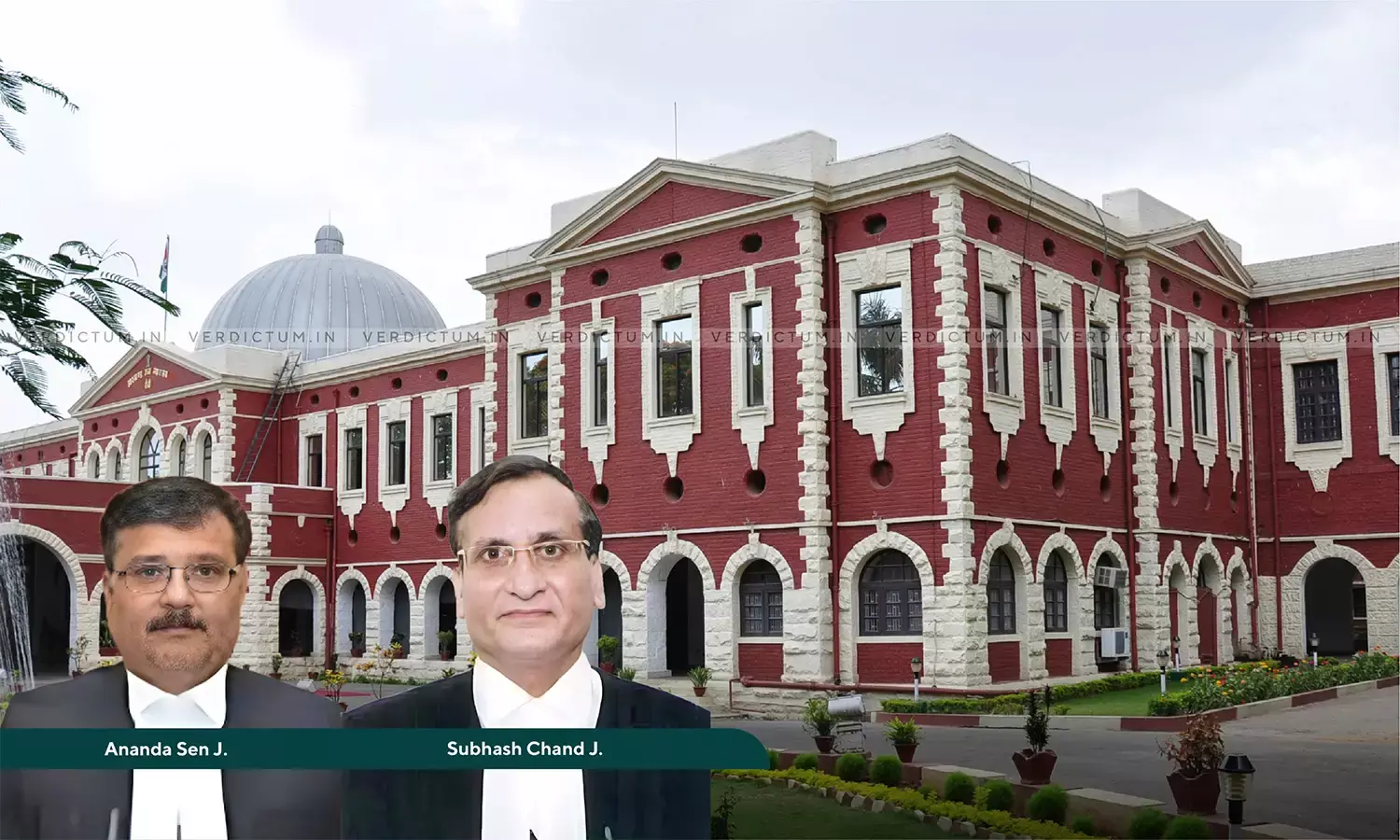In Case Of Direct Evidence, Non-Submission Of Weapon For Forensic Examination Will Not Be Fatal To Prosecution Case: Jharkhand HC
The Jharkhand High Court observed that in the case of direct evidence, the production of the weapon used in the commission of the crime and not sending the same to the forensic examination will not be fatal to the case of the prosecution.
An appeal was filed against the judgment and order of conviction by a Sessions Judge for an offence under Section 302 of the Indian Penal Code, 1860.
The Division Bench of Justice Ananda Sen and Justice Subhash Chand observed, “The learned counsel for the appellant also argued that the dagger which was recovered was not sent to FSL for examination…This defect in investigation is not found fatal to the prosecution case because the prosecution case is based on direct evidence. In case of a direct evidence, the production of the weapon used in the commission of the crime and not sending the same to FSL for examination will not be fatal to prosecution case and no adverse inference can be drawn.”
Advocate Ranjan Tiwary appeared for the Appellant whereas APP Saket Kumar appeared for the Respondent.
The Informant in the case was at the house of her maternal uncle and was sleeping with the deceased/husband. She woke up and saw a dagger in the stomach of the deceased/husband and also saw the Appellant-convict. She removed the dagger and informed her maternal uncle and aunt.
The counsel for the Appellant-convict has argued that as per the testimony of the Informant, it was night and there was no electric light and in utter darkness, it was not possible to identify the accused.
The Court said, “As per prosecution case, the informant has been residing with Dhanai Kisku at the house of her maternal uncle. Dhanai Kisku was informant’s first husband and when Dhanai Kisku went for earning livelihood to Assam for two years and she came in courtship of Doman Murmu and both resided as husband and wife. Out of the physical relation of Doman Murmu and the informant, one baby girl was also born. Taking into consideration this intimacy of the informant with the appellant, it was very easy to identify the appellant by the informant even in utter darkness on the basis of gait, bodily structure and gesture etc. As such there is no doubt in regard to the identity of the appellant at the place of occurrence.”
The Court relied on the Apex Court’s decisions in the State of U.P. v. Sheo Lal & Ors.(2009 SC) and Nandu Singh v. State of Madhya Pradesh (2022 SC) and reiterated that in case of the direct evidence, the motive has no relevancy.
The Court also observed, “Though, there is no evidence on this point whether the door was also latched from inside and by whom the door was opened, yet for the sake of argument if the connivance of the informant was with the appellant/convict as argued by learned counsel for the appellant, the same cannot be accepted reason being in statement under Section 313 of Cr.P.C, the appellant/convict Doman Murmu has nowhere stated that it was informant, who had committed murder of her husband or she was having connivance with the appellant. He denied the incriminating circumstances in evidence against him and stated himself simply to be innocent. There being no specific averment in statement under Section 313 of Cr.P.C. of the appellant, this plea cannot be accepted that the informant was also having connivance with the appellant or the murder was committed by the informant herself. Indeed the prosecution case is based on the evidence which is collected by the IO during investigation. During investigation, the IO did not find any evidence in regard to the connivance of the informant with the appellant.”
Accordingly, the Court dismissed the appeal and the impugned judgment was affirmed.
Cause Title: Doman Murmu @ Ramdhu Murmu v. State of Jharkhand
Appearances:
Appellant: Advocate Ranjan Tiwary
Respondent: APP Saket Kumar




